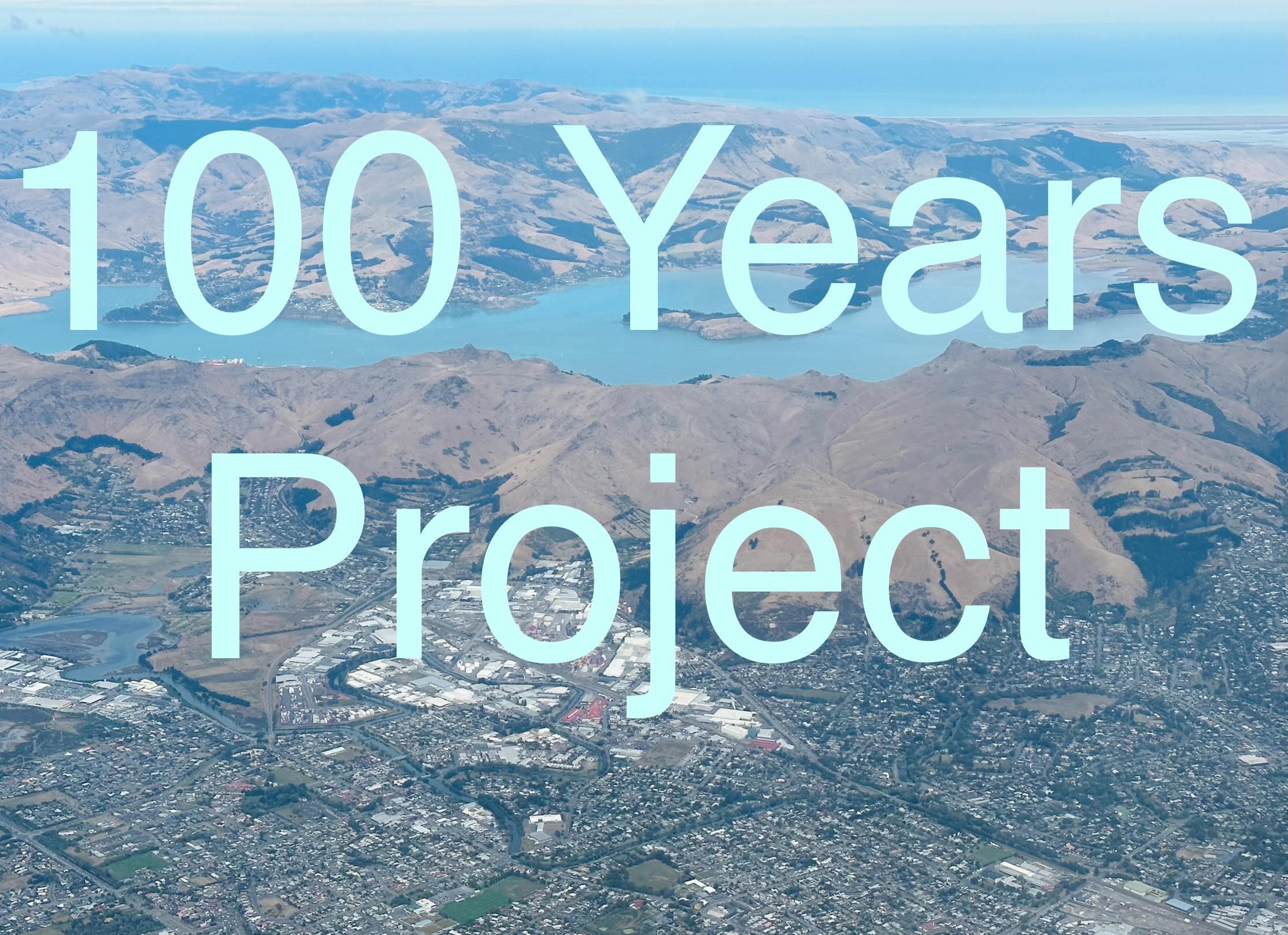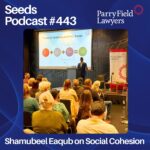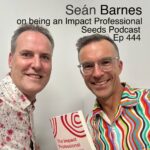This page has information on a book project I am working on compiling a variety of creative inputs from Ōtautahi Christchurch residents.
The lens for the observations is asking what it will be like 100 years from now for your area.
The form of contributions could be as an article, short story, poem, photo, interview, play or some other creative format.
Submissions can come to steven@theseeds.nz.
Those confirmed to contribute, among others, include:
Elle Archer
Sina Cotter Tait
Israel Cooper
Ronnie Cooper
Louisa Taylor
Cheryl Doig
Natasha Zimmerman
Ali Adams
Zara Potts
Stephanie Defregger
James Stewart
Amy Carter
Zahra Hussaini
David Meates
Any questions, send me an email to steven@theseeds.nz
First submission so sharing as an example of what it might be:
Health in 100 Years by David Meates
Over the last 100 years, there have been numerous health innovations and advancements that have significantly impacted healthcare and improved the quality of life for individuals and communities worldwide.
These have included the discovery and development of antibiotics, such as penicillin, that revolutionized the treatment of bacterial infections and saved countless lives; the development of vaccines for diseases like polio, measles, and influenza that has been instrumental in preventing the spread of infectious diseases and reducing mortality rates; the development of technologies like X-rays, MRI, and CT scans that have transformed medical diagnostics; advances in surgical techniques and immunosuppressive medications have made organ transplantation a life-saving treatment for patients with organ failure; the development of innovations like coronary stents, pacemakers, and bypass surgery; ongoing progress in cancer research that has led to the development of targeted therapies, immunotherapy, and precision medicine, offering new hope to cancer patients; the development of telemedicine and digital health technologies that has expanded access to healthcare services especially in remote or underserved areas; the Human Genome Project and advancements in genetic testing that have made possible personalized medicine and genetic therapies; the introduction of minimally Invasive Surgery such as laparoscopy and robotic surgery leading to faster recovery times and fewer complications; the improved understanding and destigmatization of mental health issues that has led to the development of new therapies, medications, and interventions for mental health conditions.
These are just a few examples of the health innovations that have helped increase the lifespan of humans over the past century.
While these health innovations have been remarkable, there has been a significant unintended consequence that will impact on how we think about health going forward into the next century.
Health has ended up breaking the human, the person, into a series of diseases and surgical sub-specialties. We have separated the brain (mental
health) and disabilities to create new services and interventions. We have separated our elderly from our young – our wisdom from the impetuous. We have created an increasingly siloed and specialised workforce – SODS (single organ doctors, single disease doctors) and have created a whole industry around the “worried well”. All of this under the guise of pursuing “efficiency” and “productivity”.
It is hard to fathom that 50% of total health expenditure is spent on the last 2 years of life!
We have started to lose the sense of a “whole” person and community – the essence of being “human”.
We seem to have forgotten that technology and AI are tools NOT solutions.
There are incredible advancements and developments that will shape the future of healthcare. However, predicting the future of health over the next
100 years is a challenging. Healthcare will be influenced and shaped by Artificial Intelligence and Machine Learning aiding in diagnostics, treatment planning, drug discovery, and predictive analytics; advances in genomic sequencing and gene editing technologies may lead to more effective treatments for genetic disorders, cancer, and other complex diseases; regenerative medicine, including tissue engineering and stem cell therapies, may offer new treatments for organ regeneration and repair; Nanotechnology-based drug delivery systems and diagnostic tools could revolutionize the way diseases are treated and diagnosed at the molecular level; VR and AR technologies will be integrated into medical training, patient education, and therapeutic interventions.
While the future of health holds immense potential for innovation and progress, it will also bring challenges such as ethical considerations, data privacy concerns, and the need for regulatory frameworks to ensure safe and equitable healthcare delivery. Collaboration among stakeholders, ongoing research, and a commitment to improving health outcomes for all will be essential in shaping a healthier and more sustainable future over the next century.
For these to truly make a difference to our overall health and wellbeing it needs to be integrated around a “whole” person and be supported and enabled within a health system that brings all the treads together. This health system will need a health workforce that acts as the interpreter, the integrator, and the conductor – this will involve the recreation of MODS (multi-organ doctors).
There will be major disruptors such as infectious diseases and the impacts of climate that will impact and challenge how we live, laugh work and play – COVID gave us a small glimpse of what could be. The future geo-political environment will determine our ability as humans to collaborate and prevent a widening of equity throughout the world.
However perhaps the greatest advancement that will be made over the next 100 years will be redefining what it is and what is important to “be human”.





